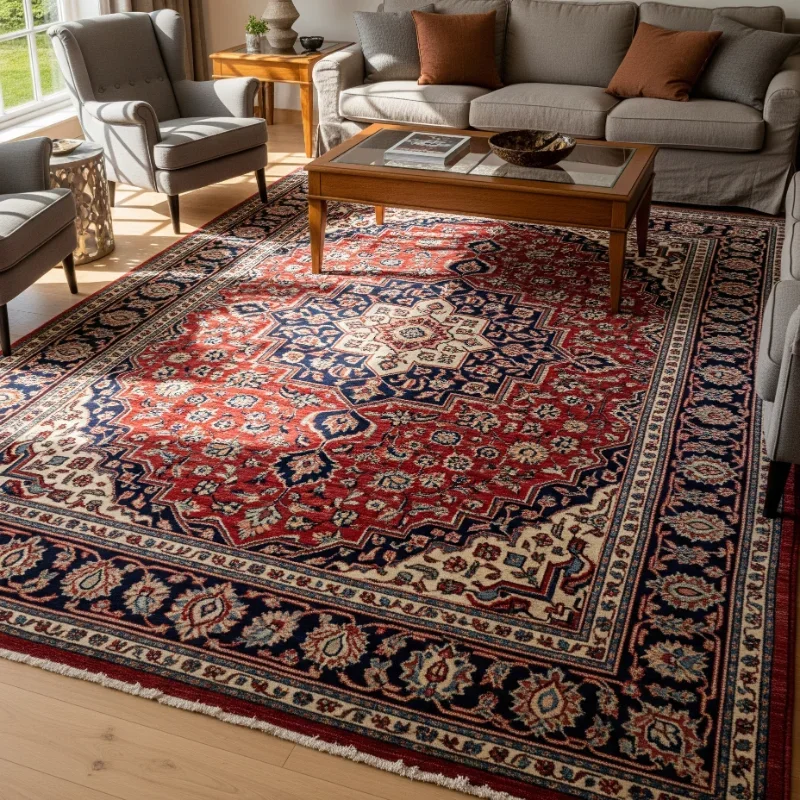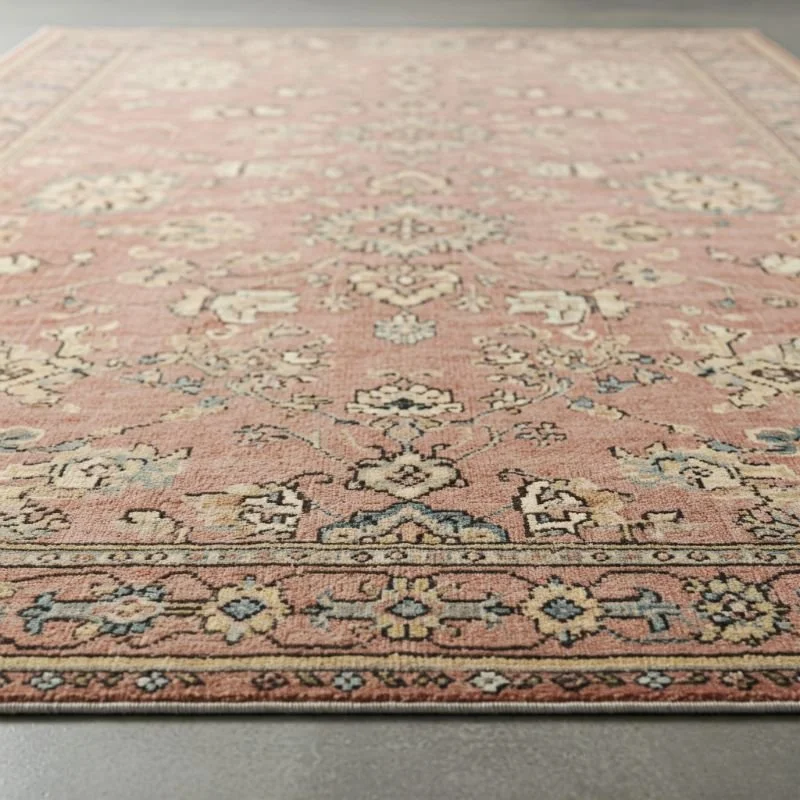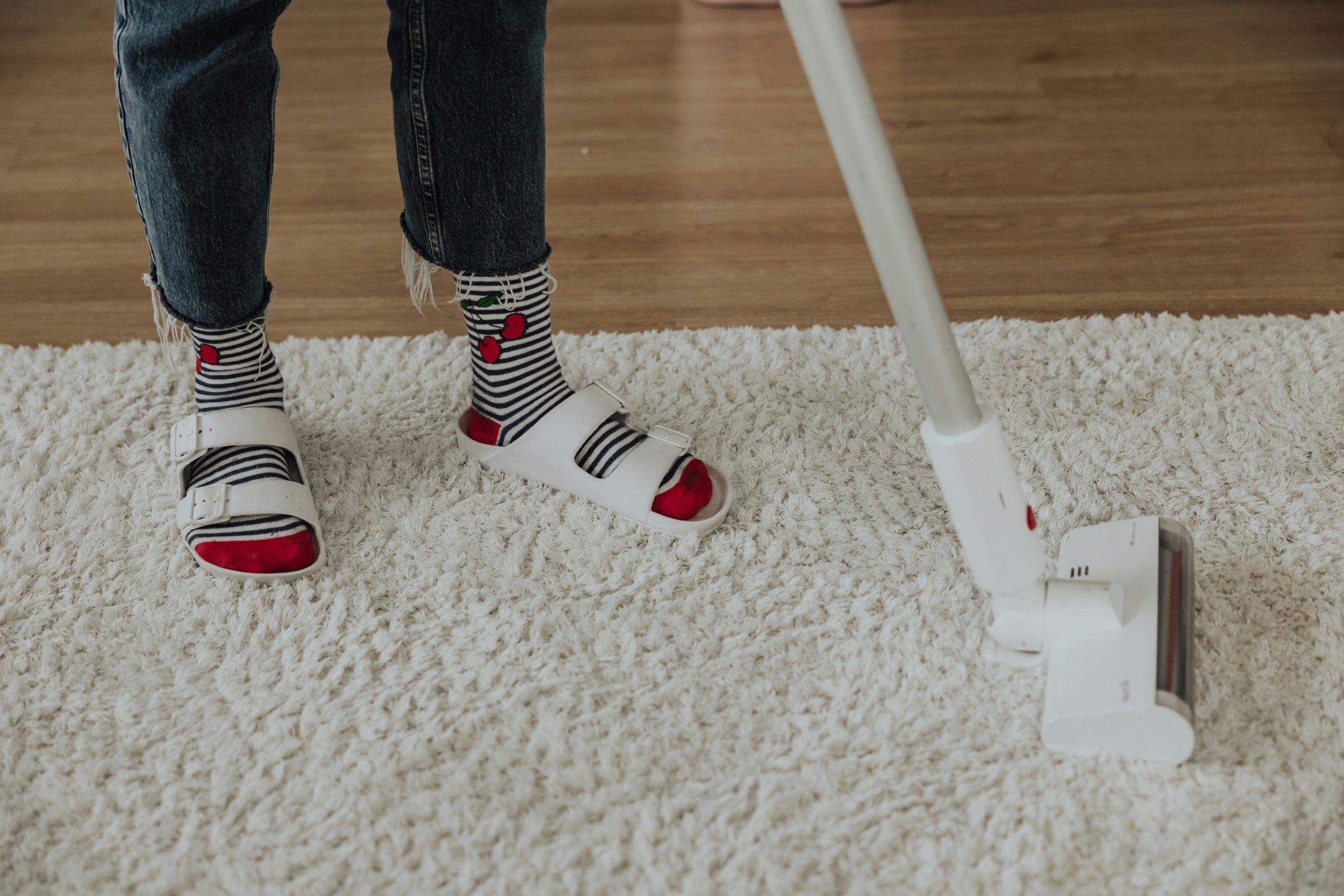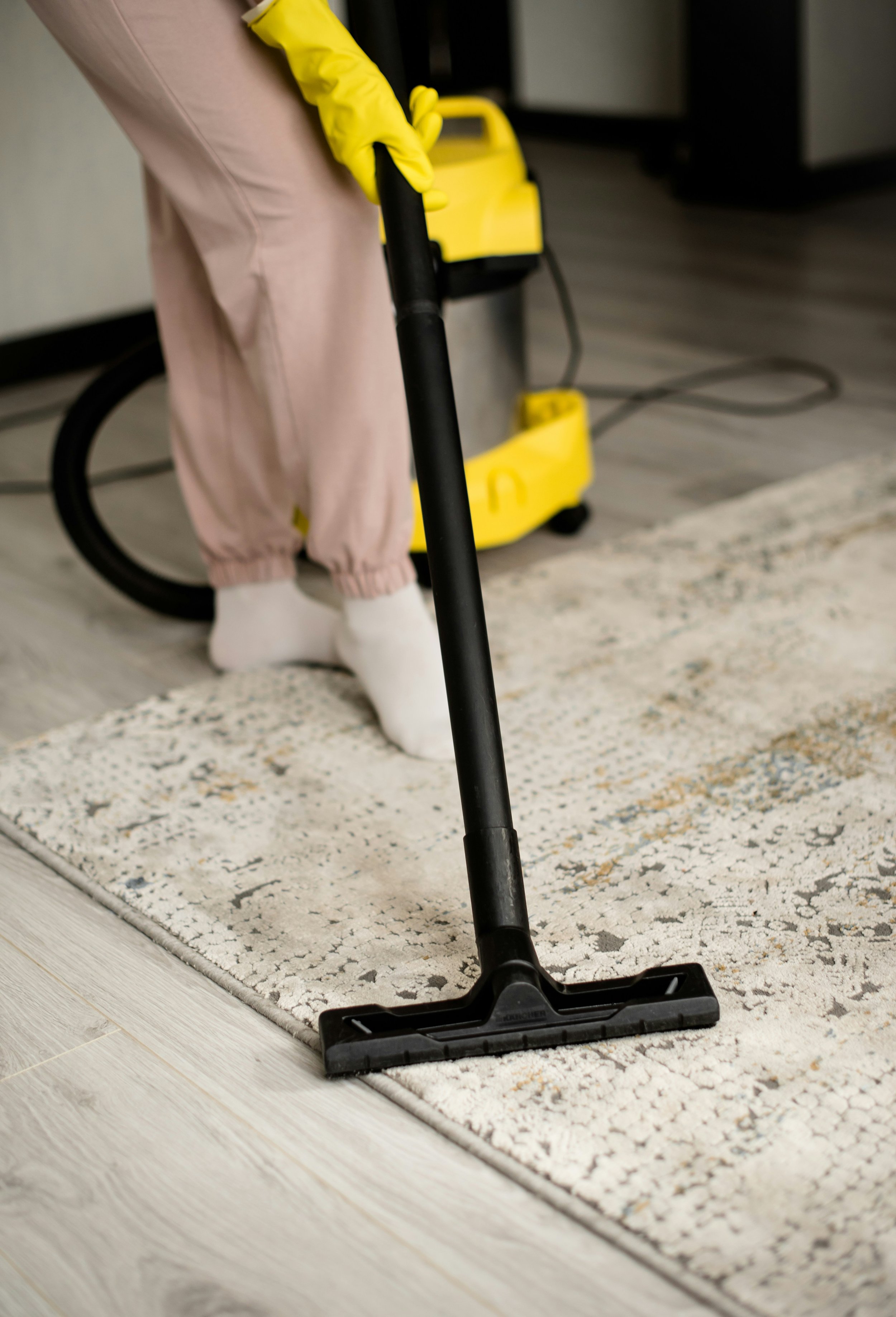What Size Rug Is Best for Your Living Room?
Discover what size rug is best for your living room with our expert guide. Learn measurements, placement tips, and common mistakes to avoid!
Oh boy, here's a decorating dilemma that's tripped up more homeowners than you can shake a stick at! You've found the perfect rug with gorgeous colors and a pattern that makes your heart sing, but wait, what size should you actually buy? Figuring out what size rug is best for your living room isn't exactly rocket science, but it's definitely trickier than most people think.
Walking into a room with a rug that's too small feels like wearing pants that are just a bit too short, you know? Everything looks off, and you can't quite put your finger on why the space feels awkward. On the flip side, a rug that's too large can swallow up your room faster than you can say "interior design disaster."
After helping countless friends and family members navigate this exact challenge (and making my fair share of rug-sizing mistakes myself), I've learned that getting the right rug size can literally make or break your living room's entire vibe. So let's roll up our sleeves and dive into everything you need to know!
Understanding the Basics: Why Rug Size Matters More Than You Think
The Visual Impact of Proper Sizing
Here's the thing about rugs that nobody really tells you: they're basically the foundation of your entire living room design. Get the size wrong, and suddenly your expensive sofa looks like it's floating in space, or worse, your room looks like it shrunk in the wash!
A properly sized rug does some pretty amazing things for your space. It grounds all your furniture, creating what designers love to call a "conversation area." Think of it as drawing an invisible boundary that says, "Hey, this is where the magic happens!" Without that visual anchor, furniture pieces look disconnected, like strangers at an awkward party who don't know where to stand.
The Psychology Behind Rug Proportions
Believe it or not, there's actual psychology at play here! Our brains are wired to seek balance and proportion in spaces. When a rug is too small, it creates visual tension that makes us feel unsettled, even if we can't explain why. It's like looking at a crooked picture frame; something just feels wrong.
Conversely, when you nail the perfect rug size, your living room suddenly feels more expensive, more put-together, and infinitely more inviting. It's honestly wild how much difference a few extra feet of fabric can make!
What Size Rug Is Best for Your Living Room? Common Dimensions Explained
Standard Rug Sizes You'll Find in Stores
Let's get down to brass tacks and talk actual numbers. Most rugs come in these standard sizes:
5' x 8': The apartment dweller's best friend
6' x 9': Perfect for smaller living rooms
8' x 10': The goldilocks of rug sizes
9' x 12': For those blessed with spacious living rooms
10' x 14': Living large in grand spaces
12' x 15' and up: Mansion territory, folks!
But here's where it gets interesting. Just because these sizes exist doesn't mean they'll work for your specific space. I've seen people try to force a 5' x 8' rug in a room that desperately needs an 8' x 10', and trust me, it's not pretty!
Measuring Your Space Like a Pro
Before you even think about shopping, grab that measuring tape! Here's my foolproof method:
Measure your seating area: Include all sofas, chairs, and coffee tables
Add 8-24 inches on each side: This gives you breathing room
Consider traffic flow: Leave at least 18-24 inches of bare floor around the room's perimeter
Account for doorways: Make sure doors can open without catching
Don't forget about vents: Blocking them is a rookie mistake!
Pro tip? Use painter's tape to mark out potential rug sizes on your floor. This little trick has saved me from countless ordering disasters!
The Three Golden Rules of Living Room Rug Placement
Rule 1: All Legs On
This is the cream of the crop, the holy grail of rug placement! Having all furniture legs on the rug creates the most cohesive, luxurious look. Your living room will look like it stepped right out of a design magazine.
For this approach, you'll typically need:
At least an 8' x 10' rug for smaller rooms
9' x 12' or larger for average to large living rooms
Custom sizes for uniquely shaped spaces
The downside? Bigger rugs mean bigger price tags. But wow, when done right, this look is absolutely stunning!
Rule 2: Front Legs Only
Here's the sweet spot for most homes! Placing just the front legs of your major furniture pieces on the rug creates a nice balance between cohesion and practicality. It's like having your cake and eating it too!
This setup works beautifully with:
6' x 9' rugs in compact spaces
8' x 10' rugs in medium rooms
9' x 12' for larger areas
Walking into a room with this arrangement feels natural and inviting. Plus, it's way more forgiving if your rug budget isn't astronomical.
Rule 3: No Legs On
Sometimes called the "floating rug" approach, this works when you're dealing with a smaller rug or want to define a specific area within a larger room. Think of it as creating a special zone, like a reading nook or conversation pit.
This method works best when:
Using a 5' x 8' or 6' x 9' rug
The rug sits completely under the coffee table
There's at least 8-12 inches between the rug and sofa
Just be careful not to go too small, or you'll end up with what I call the "postage stamp effect," where your rug looks lost and lonely in the middle of the room!
Room-Specific Considerations: What Size Rug Is Best for Your Living Room?
Small Living Rooms (Under 200 Square Feet)
Working with a cozy space? Don't despair! Small living rooms can actually look amazing with the right rug strategy. Here's what works:
Going with a 5' x 8' or 6' x 9' rug usually hits the sweet spot. The key is making sure your rug is large enough to anchor your main seating area without overwhelming the space. In tiny rooms, sometimes having the rug go almost wall-to-wall (leaving just 8-12 inches of floor showing) actually makes the room feel bigger. Counterintuitive, right?
Medium Living Rooms (200-350 Square Feet)
Ah, the average American living room! You've got options here, my friend. An 8' x 10' rug is typically your best bet, though a 9' x 12' can work beautifully if your furniture arrangement allows.
The trick in medium rooms is avoiding the dreaded "island effect" where your rug and furniture look disconnected from the walls. Make sure you're either committing to a larger rug that includes all furniture or strategically placing a smaller rug that clearly defines just the seating area.
Large Living Rooms (Over 350 Square Feet)
Lucky you with all that space! But here's where things get tricky. Too small a rug in a large room looks absolutely ridiculous, like putting a Band-Aid on a broken leg.
You're looking at minimum 9' x 12', but more likely 10' x 14' or even larger. Sometimes, using multiple rugs to define different zones works better than one enormous rug. Maybe one for the main seating area and another for that reading corner by the window?
Common Mistakes That'll Make You Want to Pull Your Hair Out
The "Too Small" Syndrome
This is hands down the most common mistake I see! People fall in love with a rug, see the price of the larger size, and convince themselves the smaller one will work. Spoiler alert: it won't!
Signs your rug is too small:
Coffee table barely fits on it
Furniture looks like it's trying to escape the rug
The room feels disjointed and unbalanced
Guests keep tripping on the edges
Ignoring Room Flow and Traffic Patterns
Your living room isn't a museum; people actually need to walk through it! I've seen gorgeous rug placements completely ruined because nobody thought about how people move through the space.
Always consider:
Main walkways through the room
Access to windows and built-ins
The path from doorways to seating areas
How the rug placement affects adjacent rooms
Forgetting About Furniture Scale
Having a massive sectional sofa with a tiny rug is like wearing a cocktail dress with hiking boots. The proportions are all wrong! Your rug size should correspond to your furniture scale.
Big, chunky furniture needs substantial rugs to balance it out. Delicate, leggy pieces can work with slightly smaller rugs. It's all about maintaining visual harmony!
Style Tips for Different Living Room Layouts
Open Floor Plans
Open concept living is all the rage, but it presents unique challenges for rug sizing. You've got to define spaces without creating barriers. Here's the secret: your living room rug should clearly delineate the living area from the dining or kitchen space.
Use larger rugs (9' x 12' minimum) to establish clear zones. The rug should be big enough to contain all your living room furniture while leaving clear pathways to other areas. Sometimes, coordinating rugs in different zones works better than one massive rug trying to do everything.
L-Shaped Sectionals
These bad boys are particularly tricky! The rug needs to be large enough to ground the entire sectional without looking overwhelmed. Usually, you're looking at:
Minimum 8' x 10' for smaller sectionals
9' x 12' or 10' x 14' for standard sectionals
Custom sizes for those enormous U-shaped numbers
The rug should extend beyond the chaise or corner section to maintain balance. Trust me, a rug that ends right at the sectional's edge looks unfinished.
Formal Living Rooms
Going for that sophisticated, pulled-together look? Formal living rooms typically benefit from the "all legs on" approach with a generously sized rug. We're talking 9' x 12' minimum, folks!
The rug should be large enough to unify all seating pieces while maintaining elegant proportions. Remember, formal doesn't mean stuffy; it means intentional and well-planned.
Budget-Friendly Solutions When You Can't Afford the Perfect Size
Layering Rugs Like a Design Pro
Can't afford that massive 10' x 14' dream rug? Layer smaller rugs! Start with a large, inexpensive natural fiber rug (like jute or sisal) as your base, then layer a smaller, fancier rug on top. Suddenly, you've got coverage AND style without breaking the bank!
DIY Rug Sizing Hacks
Here's a secret: you can actually make a smaller rug work better by being strategic:
Use furniture placement to minimize the visual impact of a smaller rug
Add a coordinating runner alongside your main rug
Paint a "border" on your floor to extend the rug's visual footprint
Use large furniture pieces to anchor the space beyond the rug
When to Splurge vs. Save
Look, I get it. Rugs can be expensive! Here's when to invest:
Splurge when:
It's a high-traffic area needing durability
You plan to keep it for years
It's the room's focal point
Save when:
You're renting or planning to move soon
Testing out a new style
It's for a low-traffic formal room
Conclusion
Finding what size rug is best for your living room doesn't have to feel like solving a complex puzzle! Remember the golden rules: measure twice, buy once, and always err on the side of going bigger rather than smaller. Whether you choose the all-legs-on approach or the front-legs-only method, the right sized rug will transform your living room from disconnected to absolutely stunning. Your space deserves a rug that fits just right!
Read next: How to Clean a Rug: Step-by-Step Guide
Frequently Asked Questions
Q1: Should my rug match my sofa exactly?
A: No, complementary colors and patterns create more visual interest than exact matching.
Q2: Can I use round rugs in living rooms?
A: Yes, but they work best with curved furniture or defining specific zones.
Q3: How much floor should show around my rug?
A: Ideally 18-24 inches, but 8-12 inches minimum for smaller rooms works too.
Q4: What if my room is an odd shape?
A: Consider custom sizing or use multiple rugs to define different functional areas.
Q5: Do patterned rugs make rooms look smaller?
A: Not necessarily; large-scale patterns can actually make spaces appear bigger overall.









